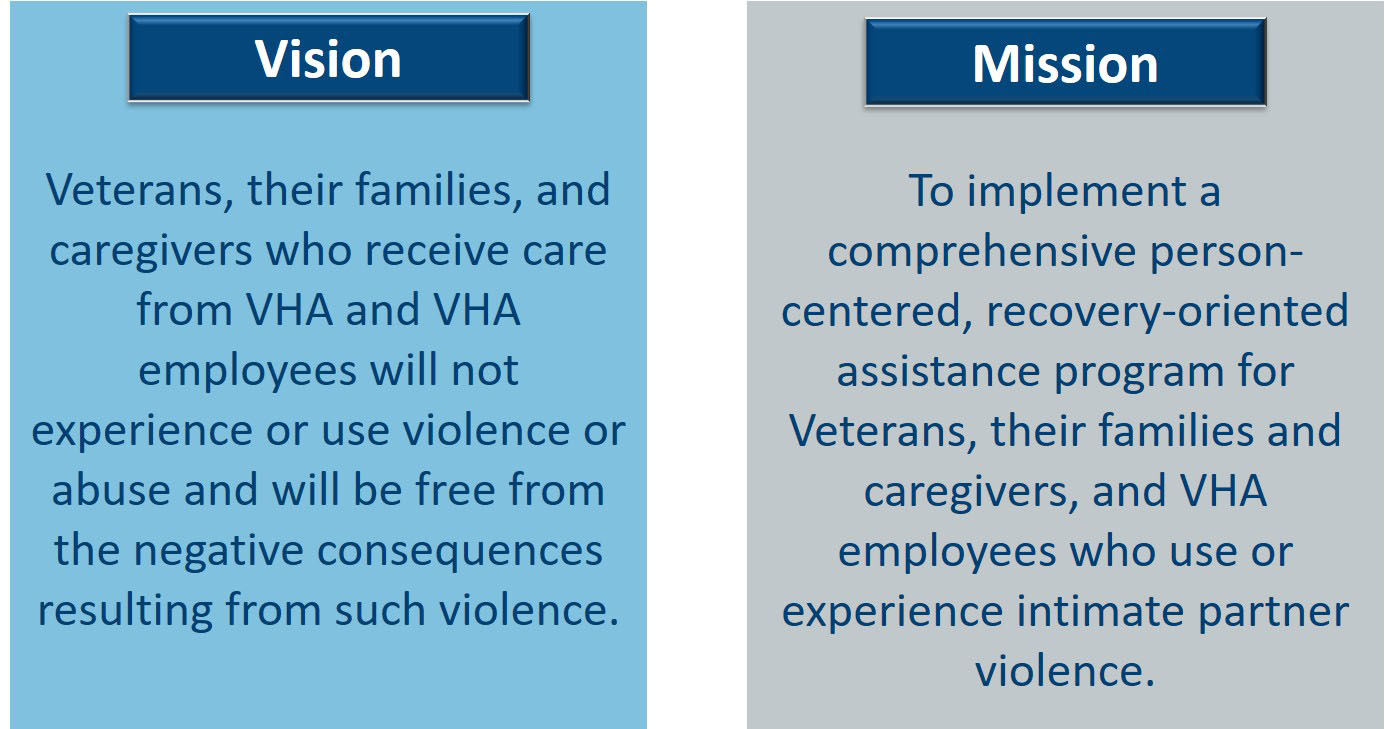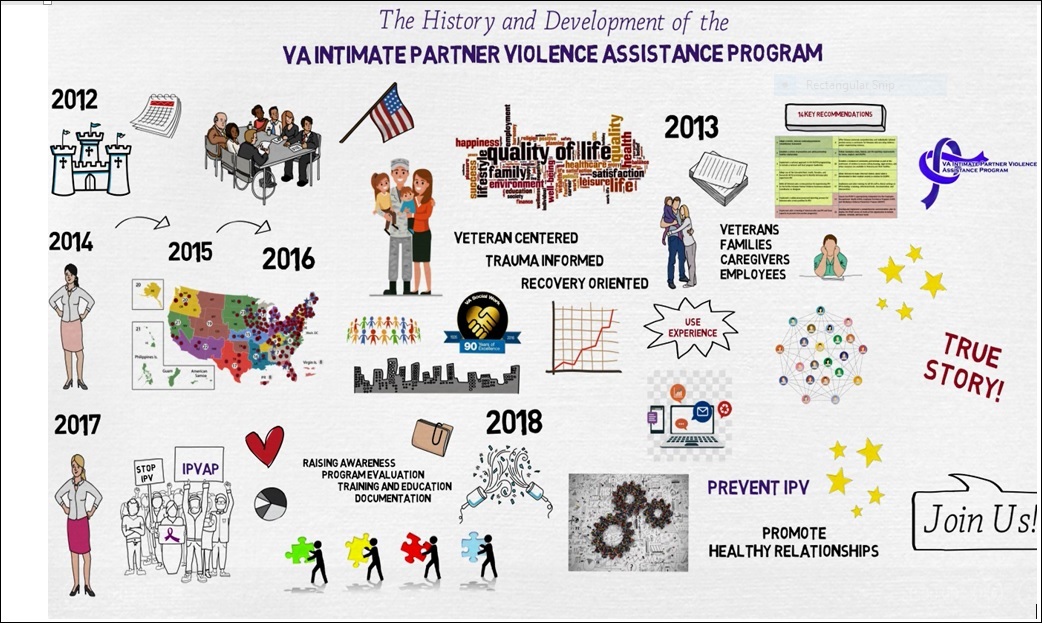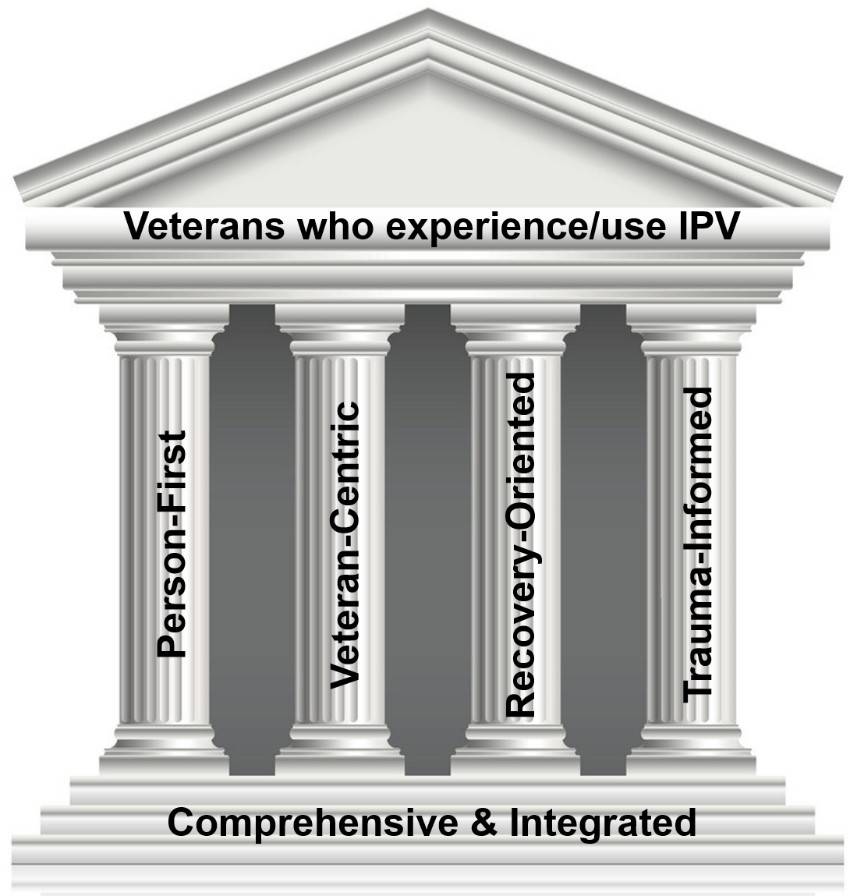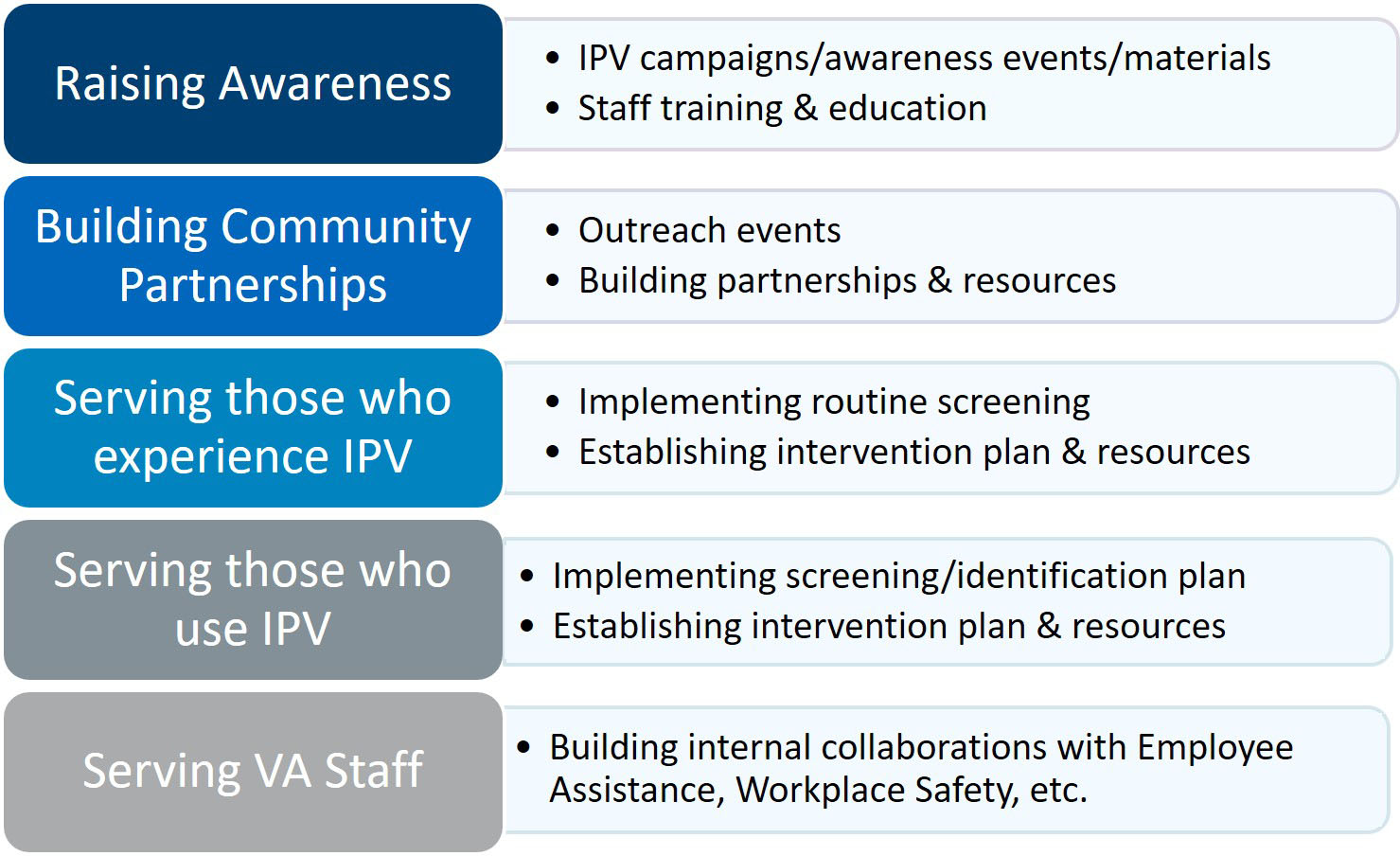Intimate Partner Violence Assistance Program (IPVAP)
Our Mission & Vision:

History & Development of the VA IPVAP:

On January 24, 2019, the VHA Directive 1198, Intimate Partner Violence Assistance Program (IPVAP) was published providing the first policy on the national implementation of IPVAP. Since its launch, the IPVAP has developed toolkits, fact sheets, and the Relationship and Health Safety Assessment to support the program’s mission to provide a comprehensive network of services to Veterans, their families, caregivers, and VHA Employees who use or experience intimate partner violence (IPV). erience i
Our Guiding Principles:

The IPVAP has adopted a holistic, Veteran-centered, psychosocial rehabilitation framework that guides all facets of the program. These guiding principles promote a culture of safety through raising awareness to intervention. All IPVAP programs and services are built upon these four guiding principles:
Person-first language refrains from the use of stigmatizing labels and refers to the behavior to be changed rather than labeling the person (e.g., “Individual who experiences/uses IPV” rather than “victim/batterer”) creating a respectful space in which to assist the individual seeking care and recovery.
Veteran-centric recognition of the unique stressors and experiences that Veterans and their families may face, that cultivating and maintaining healthy relationships may be difficult, and that addressing risk and protective factors for IPV impacts other areas of concern for Veterans (e.g., housing stability, suicidality).
Recovery-oriented model which provides a coordinated network of VA and community services that build upon the strengths and resilience of individuals and families with an expectation of improving relationships and quality of life. By serving both those who experience, as well as those who use IPV, the program aims to significantly mitigate risk while promoting healthy relationship skills.
Trauma-informed programs and services are based on understanding, recognizing, and responding to the effects of trauma by emphasizing physical, psychological, and emotional safety, and encouraging healing and empowerment. Likewise, as stated in VHA Directive 1198, the IPVAP trauma-informed care model provides a coordinated network of VA and community services that build upon the strengths and resilience of individuals and families with an expectation of improving relationships and quality of life.
Join Us in Reshaping the Conversation about Relationship Health and Safety
The Relationship Health and Safety Symbol can be used throughout the year to promote partnerships inside and outside of the VA; to raise awareness about the importance of partnering with Veterans, their families, and staff impacted by IPV and those wanting to strengthen and build healthy safe relationships; and as a visual indicator to those in need that the people and places displaying the symbol will take a trauma-informed, person-centered, and recovery-oriented approach to helping them on their path to relationship health and safety.
The Action Areas
IPVAP Coordinators at facilities nationwide are helping to reduce the negative impacts of IPV and increase relationship health and safety in five key Action Areas:
For more information or assistance, please go to the following resources:
- Directory of IPVAP Coordinators
- Directory of Social Workers
- Directory Women Veterans Program Managers(WVPM)
Not yet a patient at VA? - Apply Now
Find help in the community by calling the National Domestic Violence Hotline at 1−800−799−7233 (SAFE) or TTY 1−800−787−3224.
* Links with an asterisk (*) next to them will take you outside the VA website. VA is not responsible for the content of the linked site. This link does not constitute endorsement of the non-VA website or its sponsor.
























